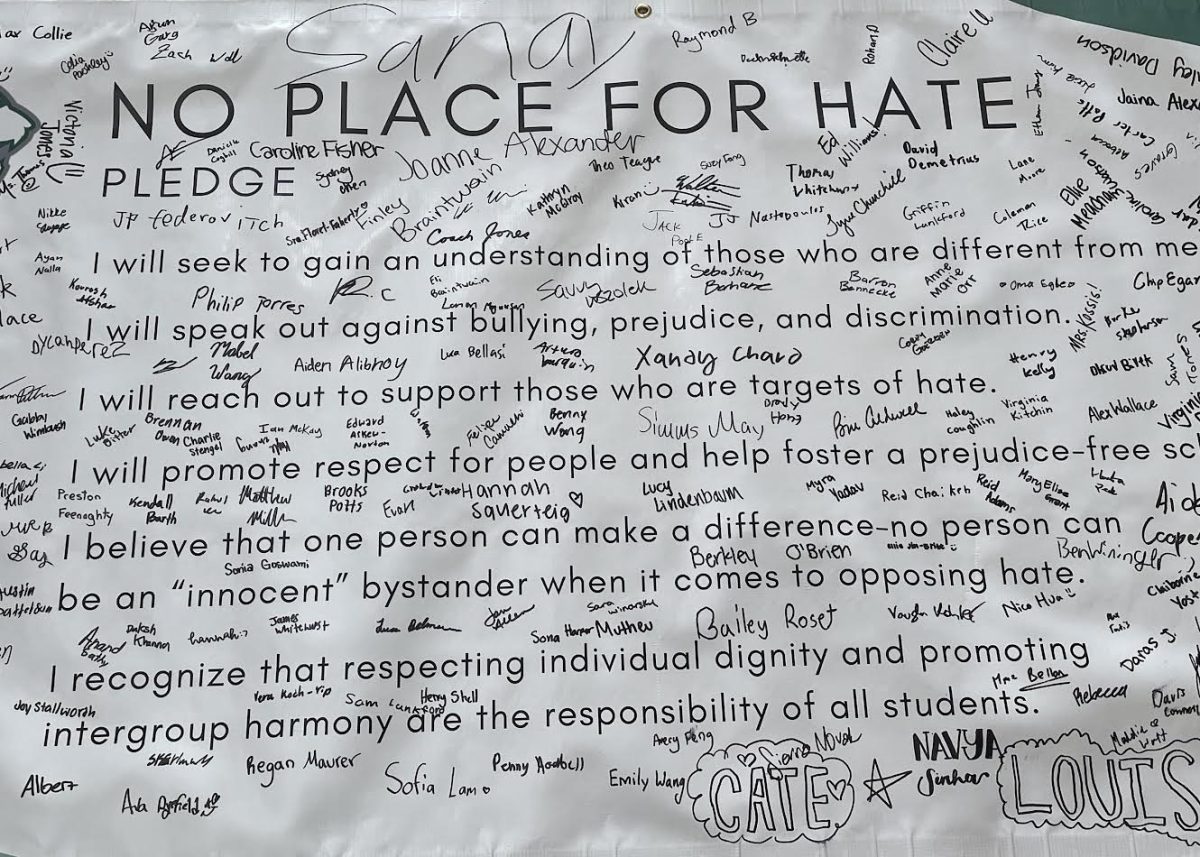Several weeks ago, the Middle School faculty announced to the community that hateful and racist language such as using the N-word and calling people monkeys was being used between students, and that the hateful behavior had to stop. The Paw Prints Staff wants to go on record that we find the use of this despicable language in our community appalling.
During recess on October 25th, every student and faculty member was called to Oglesby to discuss the recent events. The Middle School had never before needed such an assembly, and we are ashamed that the school needed one now. We theorize that social media, peer pressure, and new social norms are what led to the behavior.
All six Grade Chairs, both Deans, the Assistant Head of the Middle School, and the Head of the Middle School spoke. We consider this an incredibly important message; however, we believe it could have been delivered better. The delivery should have been more direct and less emotional. Mr. Dupriest did a good job of getting straight to the point and saying there would be repercussions if racist language persisted, and Mr. Jessup’s anger made the topic feel more serious to students. However, some speakers were very emotional, and in our opinion, that approach took away from the message. Walking into Oglesby for the assembly, no students knew what was going on. We were afraid and worried, and some thought that someone passed away. For several opening minutes, we still had no insight into what was happening. So, because many students were worried and had thoughts of drastic outcomes, the actual topic seemed less important. It was almost like a sigh of relief when we actually knew what the assembly was about.
A meeting with this serious of a topic deserves more time and thought. The assembly should have been held during a longer block of time. With children from ages 11-14 years, the assembly should not have been squished into a 20-minute time. This assembly took away recess and caused a distraction for students. Many students were more focused on losing their recess than the topic at hand. Afterward, 8th grade went straight to CogAT practice and didn’t get time to reflect, making the hateful behavior seem less significant. The lack of a reflection period and dismissal of the subject made it seem like a joke. After the assembly, students continued to use vulgar terms and hate speech, specifically in the 8th grade. While we are glad that this talk happened, we are disappointed that the 8th grade didn’t receive time to process and talk about the assembly. Since 8th grade has been in the Middle School the longest, we feel like they definitely deserved time after this lecture.
Furthermore, some students still give others the “N-word pass.” This “pass” is a commonly used term that essentially gives a person “permission” to say the N-word. The occurrence of such passes in our community is unimaginable and needs to stop. As a staff, we firmly believe there can be no pass for language so impactful and hurtful.
To be in an inclusive community and diverse environment is a privilege and honor. Under no circumstances should this “hate speech” topic become something to worry about. Whatever the reason behind such behavior—social media, peer pressure, current trends, or at-home language—these recent actions are completely and utterly unacceptable. We need to change our culture. Students: if your peers or friends are being hateful, tell them to stop. Do not allow social norms or pressure or the fear of being a snitch keep you from standing up for others and being an inclusive community.
This kind of behavior will never be okay. We know that there are problems in this environment, and we need them to change. Saying the N-word, ignoring someone saying the N-word, or giving a “pass” are all circumstances that must stop. That something like this situation would even occur scares us. Furthermore, although we are disappointed with the delivery of the message, we are glad the topic was brought up, and we are disgusted by the people who engaged in this activity. You shouldn’t allow yourself—or anybody—to become a “bystander” to hate speech.


